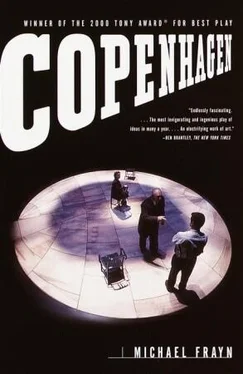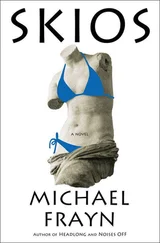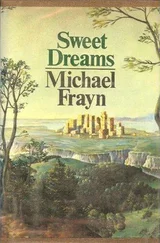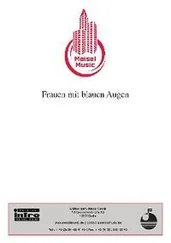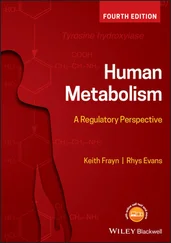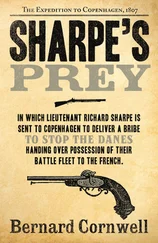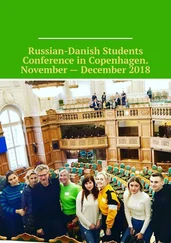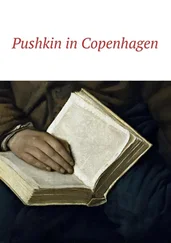I should like to record my gratitude to Professor Balázs L. Gyorffy, Professor of Physics at Bristol University, for his kindness in reading the text of the play and making a number of corrections and suggestions.
Michael Frayn
Copenhagen was first previewed at the Cottesloe Theatre, Royal National Theatre, London, on May 21, 1998, and opened on May 28, 1998, with the following cast: MARGRETHE Sara Kestelman BOHR David Burke HEISENBERG Matthew Marsh
Directed by Michael Blakemore
Designed by Peter J. Davison
Lighting by Mark Henderson
Sound by Simon Baker
This production moved to the Duchess Theatre, London, where it was presented by Michael Codron and Lee Dean, and opened on February 5, 1999.
It previewed at the Royale Theatre, New York, on March 23, 2000, and opened on April 11, 2000, with the following cast: MARGRETHE Blair Brown BOHR Philip Bosco HEISENBERG Michael Cumpsty
Directed by Michael Blakemore
Designed by Peter J. Davison
Lighting by Mark Henderson and Michael Lincoln
Sound by Tony Meola
Margrethe But why?
Bohr You’re still thinking about it?
Margrethe Why did he come to Copenhagen?
Bohr Does it matter, my love, now we’re all three of us dead and gone?
Margrethe Some questions remain long after their owners have died. Lingering like ghosts. Looking for the answers they never found in life.
Bohr Some questions have no answers to find.
Margrethe Why did he come? What was he trying to tell you?
Bohr He did explain later.
Margrethe He explained over and over again. Each time he explained it became more obscure.
Bohr It was probably very simple, when you come right down to it: he wanted to have a talk.
Margrethe A talk? To the enemy? In the middle of a war?
Bohr Margrethe, my love, we were scarcely the enemy.
Margrethe It was 1941!
Bohr Heisenberg was one of our oldest friends.
Margrethe Heisenberg was German. We were Danes. We were under German occupation.
Bohr It put us in a difficult position, certainly.
Margrethe I’ve never seen you as angry with anyone as you were with Heisenberg that night.
Bohr Not to disagree, but I believe I remained remarkably calm.
Margrethe I know when you’re angry.
Bohr It was as difficult for him as it was for us.
Margrethe So why did he do it? Now no one can be hurt, now no one can be betrayed.
Bohr I doubt if he ever really knew himself.
Margrethe And he wasn’t a friend. Not after that visit. That was the end of the famous friendship between Niels Bohr and Werner Heisenberg.
Heisenberg Now we’re all dead and gone, yes, and there are only two things the world remembers about me. One is the uncertainty principle, and the other is my mysterious visit to Niels Bohr in Copenhagen in 1941. Everyone understands uncertainty. Or thinks he does. No one understands my trip to Copenhagen. Time and time again I’ve explained it. To Bohr himself, and Margrethe. To interrogators and intelligence officers, to journalists and historians. The more I’ve explained, the deeper the uncertainty has become. Well, I shall be happy to make one more attempt. Now we’re all dead and gone. Now no one can be hurt, now no one can be betrayed.
Margrethe I never entirely liked him, you know. Perhaps I can say that to you now.
Bohr Yes, you did. When he was first here in the twenties? Of course you did. On the beach at Tisvilde with us and the boys? He was one of the family.
Margrethe Something alien about him, even then.
Bohr So quick and eager.
Margrethe Too quick. Too eager.
Bohr Those bright watchful eyes.
Margrethe Too bright. Too watchful.
Bohr Well, he was a very great physicist. I never changed my mind about that.
Margrethe They were all good, all the people who came to Copenhagen to work with you. You had most of the great pioneers in atomic theory here at one time or another.
Bohr And the more I look back on it, the more I think Heisenberg was the greatest of them all.
Heisenberg So what was Bohr? He was the first of us all, the father of us all. Modern atomic physics began when Bohr realised that quantum theory applied to matter as well as to energy. 1913. Everything we did was based on that great insight of his.
Bohr When you think that he first came here to work with me in 1924 …
Heisenberg I’d only just finished my doctorate, and Bohr was the most famous atomic physicist in the world.
Bohr… and in just over a year he’d invented quantum mechanics.
Margrethe It came out of his work with you.
Bohr Mostly out of what he’d been doing with Max Born and Pascual Jordan at Göttingen. Another year or so and he’d got uncertainty.
Margrethe And you’d done complementarity.
Bohr We argued them both out together.
Heisenberg We did most of our best work together.
Bohr Heisenberg usually led the way.
Heisenberg Bohr made sense of it all.
Bohr We operated like a business.
Heisenberg Chairman and managing director.
Margrethe Father and son.
Heisenberg A family business.
Margrethe Even though we had sons of our own.
Bohr And we went on working together long after he ceased to be my assistant.
Heisenberg Long after I’d left Copenhagen in 1927 and gone back to Germany. Long after I had a chair and a family of my own.
Margrethe Then the Nazis came to power.…
Bohr And it got more and more difficult. When the war broke out — impossible. Until that day in 1941.
Margrethe When it finished forever.
Bohr Yes, why did he do it?
Heisenberg September, 1941. For years I had it down in my memory as October.
Margrethe September. The end of September.
Bohr A curious sort of diary memory is.
Heisenberg You open the pages, and all the neat headings and tidy jottings dissolve around you.
Bohr You step through the pages into the months and days themselves.
Margrethe The past becomes the present inside your head.
Heisenberg September, 1941, Copenhagen.… And at once — here I am, getting off the night train from Berlin with my colleague Carl von Weizsäcker. Two plain civilian suits and raincoats among all the field-grey Wehrmacht uniforms arriving with us, all the naval gold braid, all the well-tailored black of the SS. In my bag I have the text of the lecture I’m giving. In my head is another communication that has to be delivered. The lecture is on astrophysics. The text inside my head is a more difficult one.
Читать дальше
